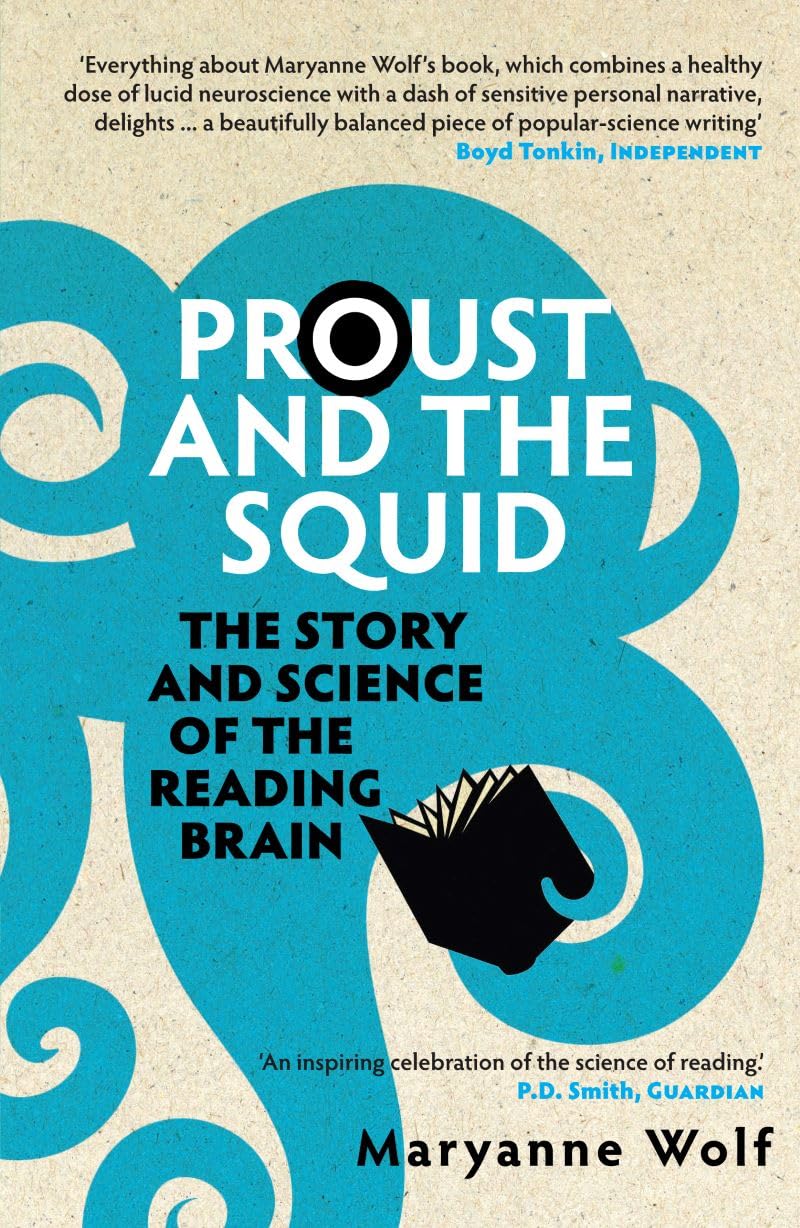

Full description not available
M**E
My Kind of Book
I love language(s) and to read someone who has spent a working life studying how languages evolve, and work, for me, is facinating. Here we have a scientific explanation for something we all take for granted, every day and never stop to wonder at. Not to everyone's taste, but certainly mine.
I**S
Five Stars
Advanced scientific results well explained, interesting graphics, personal point of views.ILs
F**O
For anyone interested in how we come to read.
A fascinating account of the problems involved in learning to read. We have no gene for reading, so our brain has to adapt to the process, linking different parts that have different functions, into a single process. Dyslexia is the result of the connections being weak or non-existent or improperly developed. I would have liked a chapter on how one treats dyslexia and, given the author's research area, was surprised not to find one.
R**E
Five Stars
a very interesting read which gave links to further reading/study
K**
Perfect.
The book arrived on time and was in excellent condition! Love it.
J**S
Five Stars
Fascinating reading
P**E
Must try harder!
Felix Dennis posted this on FB. Thought I'd check it out. Fascinating, tough reading...(if you can get your head around it, you're doing alright),
S**E
Reading is a neuronally and intellectually circuitous act, enriched ...
Reading is a neuronally and intellectually circuitous act, enriched as much by the unpredictable directions of a reader's thoughts and understandings as by the direct message of the text.Learning to read and write changed the human brains, this book examines those biological changes, through the brain scans of those who can't read or struggle to read. It also charts the changes bought about through writing in our societies and culture.
A**N
Learning to read is critical
Wolf, M., & Stoodley, C. J. (2007). Proust and the squid: The story and science of the reading brain. HarperCollins.Maryanne Wolf is a scholar, teacher, and advocate for children and literacy. She is the Director of the Center for Dyslexia, Diverse Learners, and Social Justice at the UCLA Graduate School of Education and Information Studies. Besides this, she grew up in Eldorado, Illinois, near where I grew up, another southern Illinois girl!!Reading is my favorite thing, has been for as long as I remember. I pay attention to what people are reading on planes and have noticed: more people looking at their devices instead of reading; rarely do I see children reading books, instead they're watching shows or playing games on a device, thus, my gravitation toward Wolf's work as I consider the implications. Her goals included: the evolution of the reading brain development, how the young brain learns to read and how reading changes the brain, and what it means when a brain can't learn to read. Reading is something that has to be learned. Specifically, "each brain must learn to make new circuits by connecting older [brain] regions originally designed and genetically programmed for other things." Beginning with naming things, we learn the alphabet and the association of letters, sounds, names, and ultimately meaning; reading is a learned behavior that literally rewires the brain. Research, according to Wolf, clearly shows a connection between the amount of time a child spends listening to people reading and speaking which increases a child's reading level, increases vocabulary, and improves understanding of language. Exposure to stories and books also enhances emotional development, capacity for empathy, and the ability to put yourself in another person's shoes.Word poverty is a term used to describe how by 5 years of age, some children from impoverished-language environments have heard 32 million fewer words spoken to them than the average middle class child. This poverty places these children at a disadvantage from those who have a greater vocabulary.Dyslexia was cited as an example of how learning to read can go wrong for any number of reasons. Wolf said that there is no one form of dyslexia but instead a "continuum of developmental reading disabilities." Exposure to reading, conversation, and books from age 0 to 5 is essential in the way the brain is rewired towards reading learning.I'm concerned about the ubiquitous use of technology because I fundamentally believe that reading is beneficial. Wolf's research added a great deal to my understanding of what's at stake when people don't know how to read. She asserted that reading online is not the same and her next book Reader, Come Home: The Reading Brain in a Digital World explores this assertion. I'm eager to dive in!!
-**-
Loved the book! Highly recommended...
I would recommend this book to anyone who's interested in learning more about reading and the science behind it...really good book
C**R
Very interesting and thougth-provoking.
Has many very interesting and possibly quite important insights into what we are allowing the Internet to do to our brains. Basically, we are coming to depend on well-digested factoids from the Web, rather than forcing ourselves to plough through more difficult material (also on the Web, but maybe several paiges deep on the search results), tha may require us to think more deeply about the material. We may never have to think again!Got a bit repetitive - and both the squid and Proust appear only briefly.
A**A
Pleasant reading
Very enlightening for both curious people and researchers!
A**R
Excelente libro
La historia del lenguaje y la escritura como pocos han podido contarla. Apta para iniciados y curiosos. Una gran herramienta de enseñanza y para aprender lo valioso que es la lectura en la infancia.
Trustpilot
3 weeks ago
1 day ago